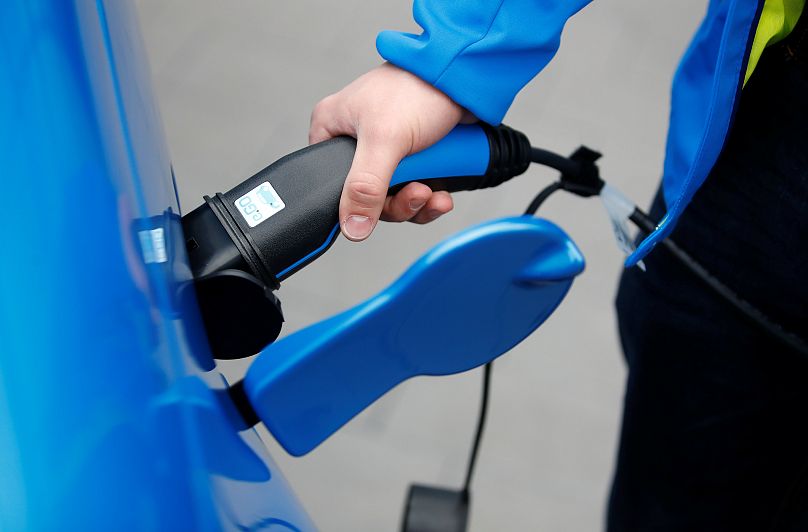EU incentivises energy communities
The Belgian rural municipality of Oud-Heverlee is linked up to the energy grid but the supply is not always reliable. Nevertheless, life is changing for 12 of its 40 households taking part in pilot-project to set up a so called energy community.
Engineer and entrepreneur Leen Peeters, that manages the research center Th!ink E, tests at her own house some technological solutions to produce, storage and share energy from renewable sources.
The aim is to have a reliable supply and reduce each family's carbon emissions that contribute to climate change.
"Washing machines and dishwashers are very low in demand in terms of power, of energy, so do not waste time on that. But focus on higher loads like heat pumps, electric car charging, swimming pool heat pumps, thinks like that, those are important", says Leen Peeters.
The houses are equipped with a range of technologies: hybrid solar system, fuel cell, thermal storage, heat pumps, batteries.
The aim is to reduce heating consumption by 25% and electricity consumption by 60%.
But besides use and storage for colder days, the aim is selling to others, namely by putting energy back in the national grid, something usually done by licensed electrical companies.
Legal counselor Hilde Derde is studying the legal implications: "We will be producers, we will be delivering to the others, we will be exchanging. So, how can we do it without breaking some laws? For example, you have to pay for putting energy back into the grid, that will be used by other people after".
EU financial support to convince Member States
This community is one pillar of the consortium MUSE GRIDS, that received 7,4 million euros from the European Union’s Horizon 2020 funding program for research and innovation, as well as private financing.
The project started six months ago and is to be concluded in 2022, with other testing taking place in Italy, Spain, Israel and India.
The prospects for research and dialogue with the governments and the energy industry were discussed at a conference, in Brussels.
The EU’s Clean Energy for All Europeans package gave legal basis to the rights of these energy communities in late 2018, and it's set to be adopted by the 28 Member States before mid 2021.
"We expect that this concept will be also taken up by the Member States that so far do not have this strong tradition or no tradition at all. Among the many benefits that they can offer is increased public acceptance of renewable projects and there is private capital invested in the energy transition", says Jan Steinkohl, policy officer at European Commission's DG Energy.
Environmental organizations commissioned a study that predicts a bright future for this concept. Half of the EU's nearly 500 million citizens could be producing their own renewable electricity by 2050, meeting 45% of our energy demand, according to CE Delft's report "The Potential for Energy Citizens in the European Union".












